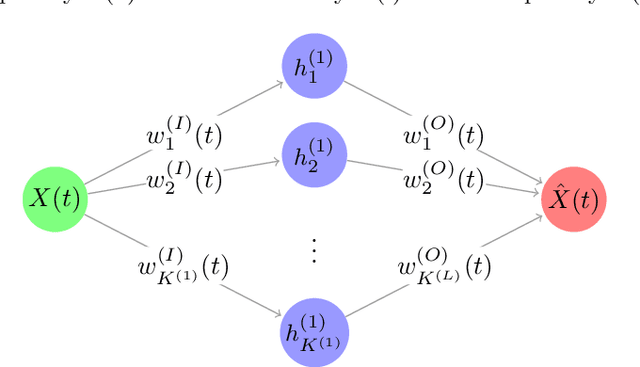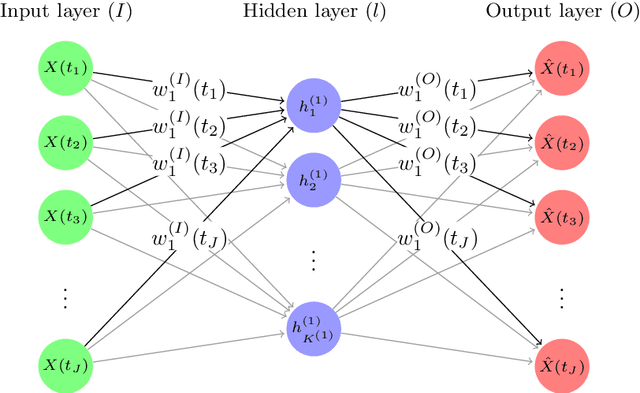Functional Autoencoder for Smoothing and Representation Learning
Paper and Code
Jan 17, 2024



A common pipeline in functional data analysis is to first convert the discretely observed data to smooth functions, and then represent the functions by a finite-dimensional vector of coefficients summarizing the information. Existing methods for data smoothing and dimensional reduction mainly focus on learning the linear mappings from the data space to the representation space, however, learning only the linear representations may not be sufficient. In this study, we propose to learn the nonlinear representations of functional data using neural network autoencoders designed to process data in the form it is usually collected without the need of preprocessing. We design the encoder to employ a projection layer computing the weighted inner product of the functional data and functional weights over the observed timestamp, and the decoder to apply a recovery layer that maps the finite-dimensional vector extracted from the functional data back to functional space using a set of predetermined basis functions. The developed architecture can accommodate both regularly and irregularly spaced data. Our experiments demonstrate that the proposed method outperforms functional principal component analysis in terms of prediction and classification, and maintains superior smoothing ability and better computational efficiency in comparison to the conventional autoencoders under both linear and nonlinear settings.
 Add to Chrome
Add to Chrome Add to Firefox
Add to Firefox Add to Edge
Add to Edge